How to Learn After College - Comparing Ways for Learning After College in 2020
Today I'm sharing ideas for how to continue learning after college. I know that it can be an adjustment once you leave college and you're kind of "done" with school because school has been all you've known for the majority of your life. It can be a really tough switch to go from learning academically every day to learning in a different way. You will be learning things at your job but it probably won't be in an academic sense. I know for myself, I still want to continue expanding my knowledge, learning about different subjects, different skills, and to just keep my mind active in as many ways as possible! I decided to provide numerous resources that you can utilize in order to keep on learning after college and provided some basic info about each of the platforms. These websites allow you to take classes online, courses online, and earn certificates online! These are very affordable ways to learn after college and there are even some free online courses as well!
If you've ever asked:
What is LinkedIn Learning? How does LinkedIn Learning work? Is Coursera worth it? What is better Udemy or Coursera? How does Masterclass work? How to take classes online for free?
Hopefully this post grad education advice blog post helps to answer your questions!
I also made this information available in a video format as well!
https://www.youtube.com/watch?v=thf9dZtlbZo

The first idea is to utilize LinkedIn Learning. I'm a really really big fan of LinkedIn Learning, I think everyone that has a LinkedIn profile should definitely take advantage of LinkedIn Learning! You get a one month free trial which is a really good option for you to test out the classes and to see if you like the formats. There are classes on so many different topics including Excel, PhotoShop, all of the Adobe products, etc. You can take classes on strategic leadership and just so many different things! They're called classes but basically each class is just one video. Some videos go in order and allow you to build upon skills that you learn in one video and then maybe another video will be a little bit more advanced. The videos definitely vary in length, some of them are less than half an hour, some of them are one hour, and some of them can be more than five or six hours. You can determine your own pace for getting through the material though. You can set aside some time over the course of a couple days or even over the course of the month, it's really up to you! All of the videos are prerecorded lectures and a lot of them include slides which makes it easy to take notes. I personally have a whole notebook full of notes from all of the LinkedIn Learning classes that I've taken. I feel like writing down notes helps me remember the information that I'm absorbing and makes it a lot easier for me to retain the information. If you feel like you really like LinkedIn learning after the one month trial is over it's $29 per month if you're interested in continuing to have access to those learning classes!
https://www.linkedin.com/learning/
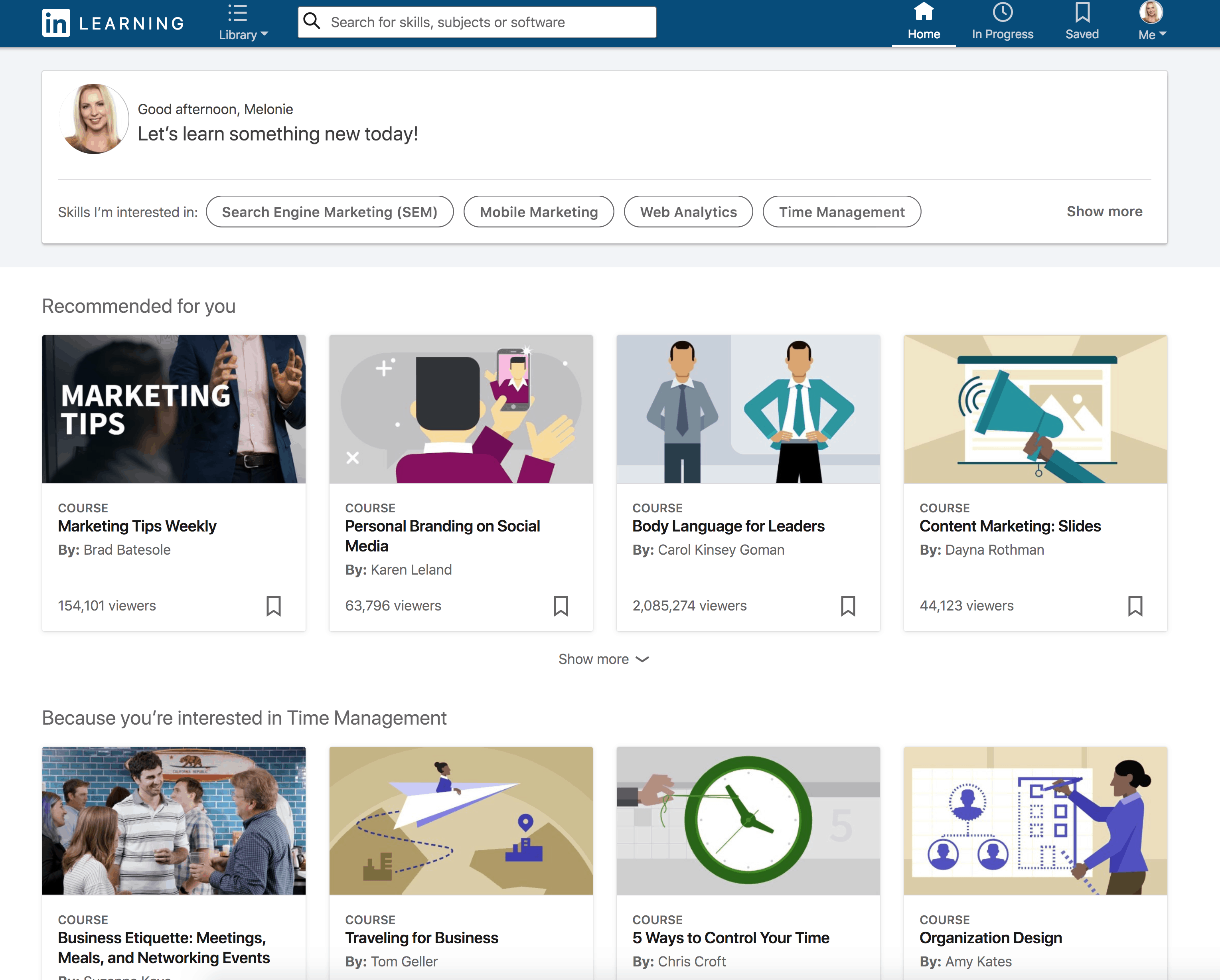 |
| image via topdogsocialmedia.com |
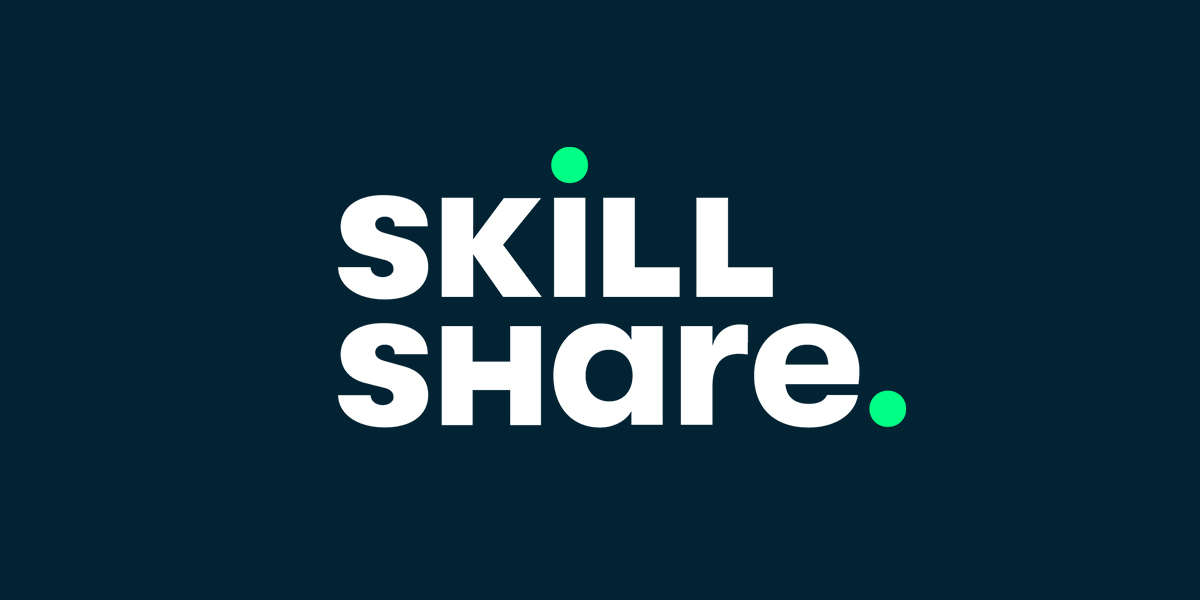
Another option to be able to continue learning after college is using Skillshare. They are a good resource. They also have prerecorded videos to learn from and there are some free courses. There isn't a one month free trial like there is for LinkedIn Learning. The classes usually consist of the prerecorded videos and some activities or projects that you submit online and then you receive feedback from other people that are also taking the same class. If you want to have access to more classes than just the free ones it's $8 a month if you pay annually or it's $19 a month if you just pay month to month.
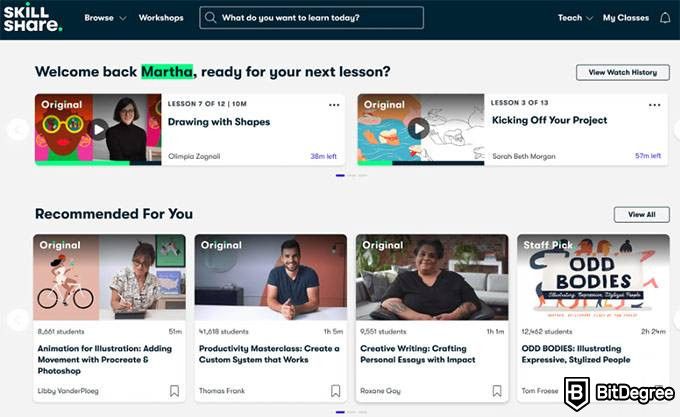

I have not personally used Udemy but I do know that the platform is regarded well. It is a bit more tech focused than the other two options that I've mentioned so far. A lot of the courses are focused on different software and different programs. You pay per class. I was looking at some of the prices for the classes; some of them are only $12.99 while others are $29.99. There is a really big range of prices so some of the classes are really, really affordable and some of them are a bit less affordable but are still reasonably priced. For the courses on Udemy there are no deadlines. You can proceed at your own pace and again the courses consist of lecture videos, different practice activities, different slides and power points, and you can earn a certificate of completion after you've finished the course.
![$10 Online Courses from Udemy [4 Days Only] | JUST™ Creative](https://justcreative.com/wp-content/uploads/2017/03/Screenshot-2017-03-28-10.16.36-1024x739.png)

I am currently taking two different classes through Coursera and these classes have a slight schedule so they usually last for about a month. There are different things to do each week; you have to finish watching certain videos, doing certain readings, and then there are peer graded assignments like case studies. For the case studies you'll be given a prompt based on what was covered in the lecture videos, you do the assignment, submit it and then you'll get feedback from other people in the course. You do end up getting a grade but it's not the same as grades in regular school. You do need to get a passing grade in order to successfully complete the course but if you don't care about getting a certificate then the grades don't really matter. But if you're interested in the topic and you want to learn about it I'm sure that you'll do your best and you'll be able to pass! As I mentioned, there are deadlines but you aren't penalized if you don't submit something on time. It's a good idea to keep up with the deadlines and have everything done on time though because peers need to be able to give you grades. If you're not turning assignments in, in a reasonable amount of time then there might not be anyone to give you feedback on it and you need to get feedback in order to get a grade for it. (So everything ties together with completing the course on time). With Coursera you pay per course. Some of the courses are about $39 and you can take courses for free but if you want to be able to earn a certificate then you do have to pay. How Coursera works is that professors from different universities will come up with the coursework, assign the readings and will present the course information in the lecture videos.
Right now I'm taking a class offered on Coursera through UVA called marketing analytics and I'm taking another course from the University of Illinois called marketing in a digital world. I'm liking them so far. It's definitely a bit to get used to after being in a regular classroom setting when I was in college and now I'm taking college classes through a third party (Coursera) online. It is very different than traditional college or even Zoom University because those are live classes (and Coursera is prerecorded) but it's still a really great option in order to continue learning!
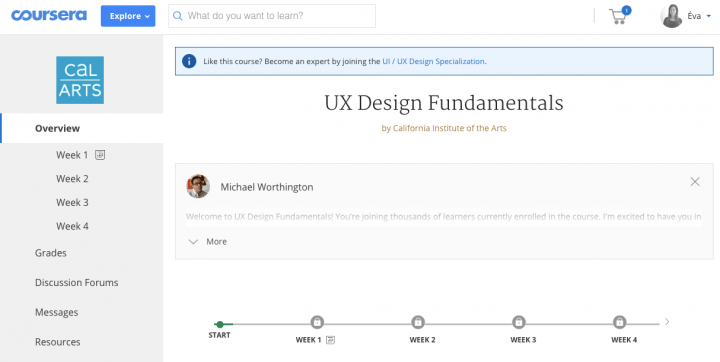
For all of the different options that I'm mentioning in this blog post you can either take classes on things that are related to your career; maybe different programs that you want to get better at or you can just take classes on anything that you're interested in (even if it's not related to your career because learning doesn't always have to be academic or focused on your career field). For example, if you just want to learn PhotoShop because you think that would be fun then that's still learning and you can take a PhotoShop course through a bunch of different platforms including some of the ones I'm mentioning in this post. There are really limitless possibilities for what you can learn and how you can learn it!

Another platform that offers online classes is Masterclass. This site seems a bit more upscale because all of the lecture videos are from industry professionals that are very, very well known. Natalie Portman has a class on there and there's a lot of different arts and entertainment themed courses. Gordon Ramsey also teaches a Masterclass and there are ton of different subjects that are covered on the site. For Masterclass it's $15 per month if you pay annually, there aren't any deadlines so you can learn at your own pace, and each class consists of multiple videos. The class videos are broken down into different sections so there will be an introduction or an overview video and then other videos covering the different topics within the class. It's different than LinkedIn Learning and some of the other platforms because one classes consist of multiple videos like Coursera does but it is different than Coursera because there are no deadlines.
Based on your learning style you can find a platform that works for you!
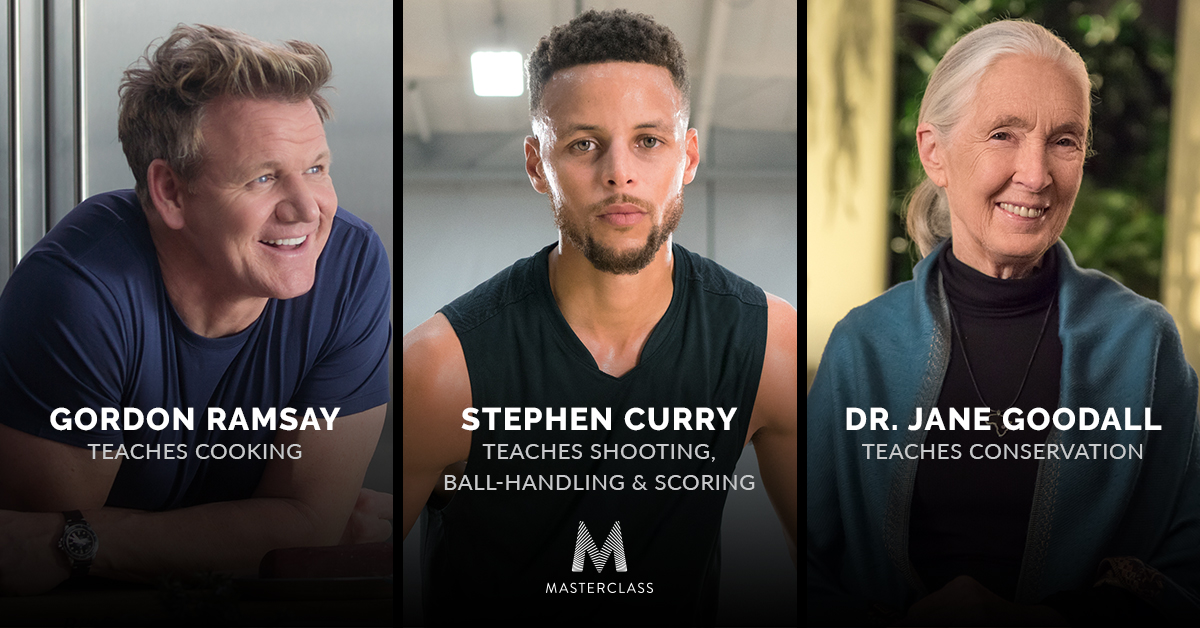

I know that a lot of different industries use a software program called Salesforce. I personally haven't used it but I see it mentioned a lot in different job descriptions and everywhere on the internet! If you are interested in learning Salesforce there is a website called Trailhead that offers many different paths for ways that you can learn Salesforce. For example, there's one path if you're going to be a Salesforce administrator and other paths if you're going to use Salesforce in different ways. I thought I would just mention Trailhead because Salesforce is a very, very popular program. Trailhead is a free website to use and you are able to get a certificate after completion (but if you want a certificate then you do have to pay).
https://trailhead.salesforce.com/


Next is Domestika which according to their site is "a community for creative people". I wanted to include that quote because I feel like that nicely sums up that website. They have different courses that are basically all arts focused and you learn at your own pace through videos. There are a couple of free courses but the majority of them you do have to pay for and you pay per course. The courses are about $10 to $20 and if you pay for a pro membership then you're able to earn certificates after completing your courses.
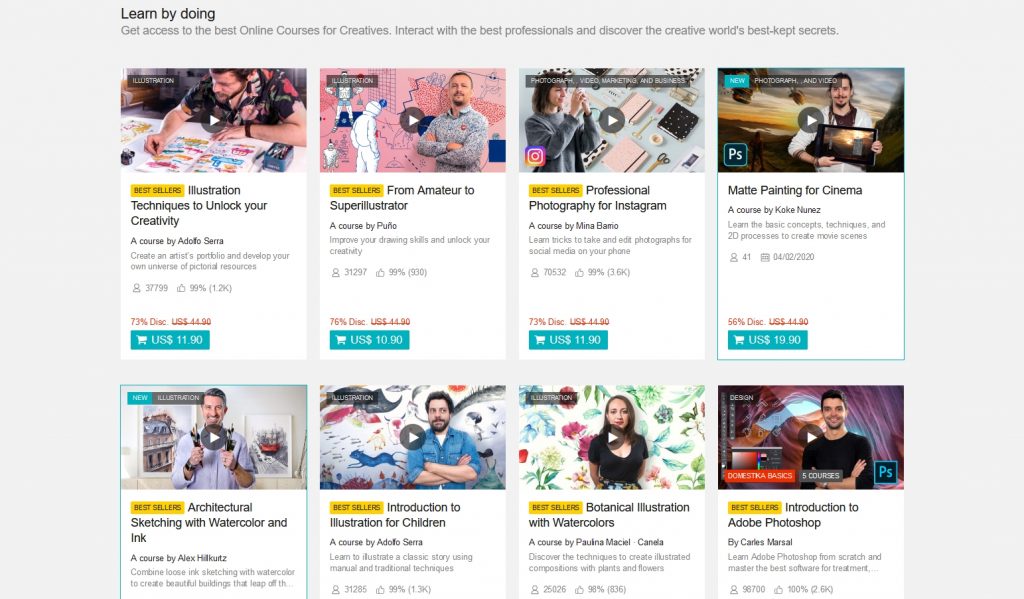
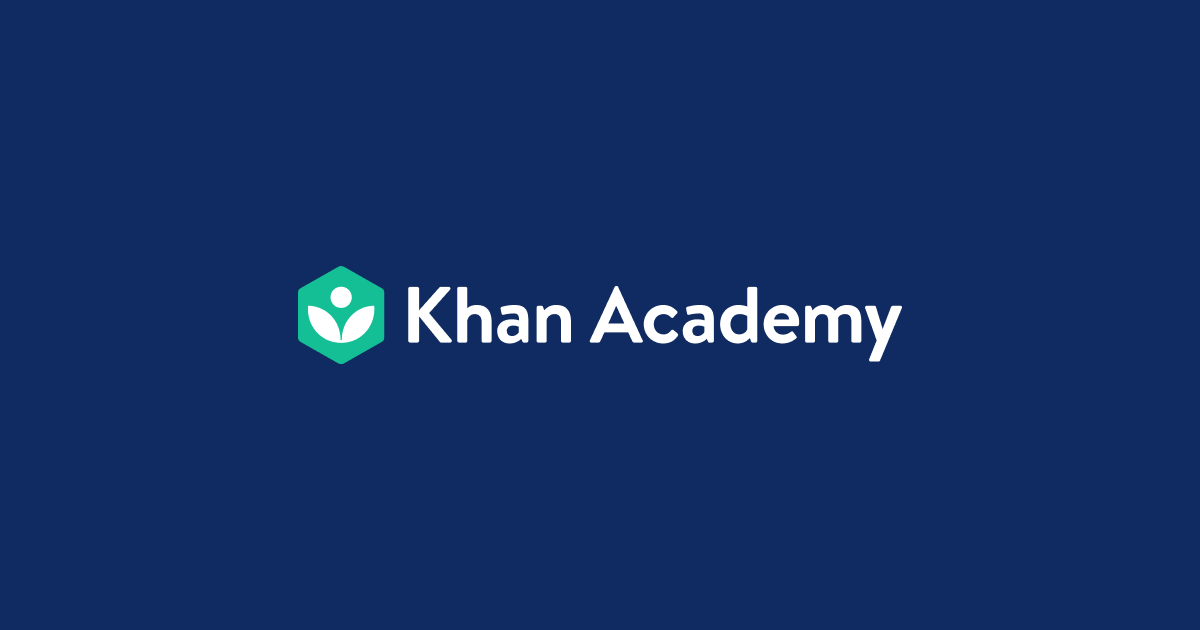
Khan Academy is something I feel like some of you have probably heard about before or used before when you were younger. It's definitely more geared towards people in high school or younger but they do have some courses that are beneficial to people out of college as well. I loved using Khan Academy when I was younger, I found it to be very useful. They have some courses on subjects like history and economics so the site can still be applicable for people who are a bit older than the site's regular target demographic (of people younger than high school age).
The last website that I'm going to mention in this continual learning blog post is Codecademy - which may sound similar to Khan Academy but is actually very different. Codecademy is just focused on coding and different coding languages which I feel like is extremely helpful in this digital age. I think that everyone should know some basic coding skills. I took some web design classes in high school and in those classes I started learning some html and css and that actually helped me when I was setting up my own blog (the one you're reading right now)! Even though I use Blogger which is through Google and there are templates for blogs, if you want to customize anything you have to use code! Thanks to my prior (even though it was small) background in coding I was able to customize my blog a bit! Obviously I'm not an expert and I definitely want to continue developing my coding skills!

As I mentioned you can take classes on topics that are related to your career field and classes that'll help you advance your career. If you don't already have an idea for something that you specifically want to learn you can look at job descriptions (even if you're not looking for a job right now) to see if there are any common skills or programs that are mentioned a lot that maybe you don't have the most experience with. Then you can start taking courses to gain those skills so that way when you do want to move up in your career field then you'll already be ready! Again, you can also of course just take online classes about things that you're interested in that aren't career related.
I hope that you found this post to be helpful! I know I was definitely missing the learning aspect of college, I mean there's so many things I miss about college - but that's for another day lol, but I'm really glad that all of these platforms and resources exist and hopefully at least one of them sparked your interest! Have you used any of these websites before?
If you end up taking any courses or checking out any of the platforms out I'd love to know in the comments! Thank you so much for reading!








No comments:
Post a Comment